Peace and Nonviolence

Two weeks ago, the Israeli ambassador to the United States, Michael Oren, claimed in an article in The Wall Street Journal that the exodus of Palestinian Christians from the West Bank and Gaza is the fault of Palestinian Muslims. The article was full of inaccuracies and even lies, and Palestinian Christians responded with anger and disgust. The Wall Street Journal then featured some of these responses.
This is a serious issue for Palestinian Christians. We are not saying that radical Islam is not a threat. We are not denying that there are some struggles that we face as a minority. We are not denying that there are some incidences in which Christians were attacked by radical Muslims, like in the death of Rami Ayyad in Gaza.
What we are saying, is that for us, the real issue and the core of our struggles is the Israeli occupation.

A 53-nation nuclear summit opens today in Seoul, South Korea. On the agenda are efforts to stop North Korea’s nuclear weapons program and to prevent Iran from acquiring them, further reductions in the US and Russian stockpiles, and preventing terrorist group from getting radiological materials.

It has been a busy few weeks at the U.S. Supreme Court. Hundreds of people having been in line over the weekend to obtain one of the coveted public tickets for the healthcare mandate case. And last week, in a case which was somewhat less publicized, the highest court in the land debated whether juveniles should receive life without parole in homicide cases, the only crime for which such a punishment is still an option for minors.
A daunting task, but one that garnered a number of thoughtful pieces throughout the media and blogosphere.

This is largely addressed to my white brothers and sisters, particularly those in the church. I’m a white woman, was raised in an almost all-white town and have spent most of my life in predominately white faith communities. White people don’t like to talk about racism. We like to pretend it isn’t real and we don’t benefit from it. This has got to stop.
When Barack Obama was elected president, there was all kinds of talk about the United States being a post-racial society. This was, and is, total BS. It was (and is), however, a really nice bedtime story us white folk can tell to our kids and to ourselves. Rest easy, everyone. Racism is dead. No need to worry about race anymore. Go to sleep, sleep. sleep …
Every once in a while, we (by we I mean my white brothers and sisters) wake up from our little racism-doesn’t-exist slumber. When a celebrity says something out loud that we know is something you just don’t say (inner voices, white brethren) we get all up in arms and demand an apology. Then we go back to sleep. While we sleep, some of us clutch our purses on the train, lock our doors when we drive through minority neighborhoods or cross the street when groups of dark-skinned men stand in our path. We tell ourselves that we are doing it for our own safety, if we realize we are doing it at all. We make assumptions about people’s intelligence, responsibility, work ethic and a whole host of other things based on the color of a person’s skin. I do not exclude myself from this description. I do it too.
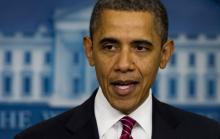
President Barack Obama spoke out about the Trayvon Martin shooting Friday morning at a press briefing nominating Dr. Jim Yong Kim to head the World Bank.
"If I had a son, he’d look like Trayvon," he said. "And I think [his parents] are right to expect that all of us as Americans are going to take this with the seriousness it deserves and we’re going to get to the bottom of what happened."
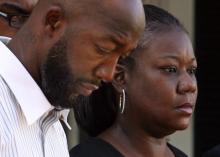
It’s been almost a month since the slaying of Trayvon Martin. This particular African-American child was intentionally shot through the chest while walking back from the store in a Florida suburb. He was armed with a pack of skittles and some iced tea.
For the past few weeks, each time I open my Facebook account or scroll through Twitter I see endless posts about the Trayvon Martin case. And I’ve seen Trayvon’s faceover and over again. He was 17 but he looks like a 15-year-old cousin of mine.
I have not written anything about this tragedy because to be honest, I have been unable to find my words around or through this. I could write about anger, injustice, racism, the loss of another black male child, crazy American gun laws or even the shock or actually lack thereof, of how the police initially handled this murder. But mostly what I want to write about is the deep, deep sadness and sorrow I cannot seem to shake.

George Clooney and others were arrested on the steps of the Sudanese embassy last week to call attention to the violence in South Sudan. The actor-activist, along with Jon Prendergast, testified before the Senate Foreign Relations committee and conducted a series of media interviews to explain the situation in South Sudan, the world’s newest nation.
I applaud Clooney for using his star power to shine a light on the violence in South Sudan. Now that we see the problem the question for us is: what does this situation require of me personally?
Similarly, when we watch the Kony 2012 video that, for all of its flaws, informs people about the crimes against humanity of Joseph Kony and the efforts to bring him to justice, the same question arises.
The world is full to the brim with tragedy. We see the violence in Syria, people protesting their government are killed by their own government. We see world leaders who cannot come to consensus about the right thing to do.
What action will at once end the violence, protect the people, and depose an illegitimate government while not increasing violence in a complicated and volatile region of the world?

George Clooney has been making the morning-show rounds today, bringing to light the humanitarian crisis happening in Sudan. On a recent trip to Sudan's Nuba Mountains, Clooney witnessed rocket attacks against the Nuban people and the effects of the ongoing violence.
WARNING: This video contains graphic content that some viewers may find disturbing.
If you were walking down the street and a stranger approached you and punched you in the face what would you want to do in that moment? Sure, this is an odd hypothetical situation, but really, answer the question.
Few would say, “I would want to give that person a hug.” Depending on the size of the attacker most would either fight back or run away. But let’s suppose you fought back, and even vanquished your assailant, pummeling him repeatedly for his dastardly deeds. What then?
Would he, through being beaten, come to understand his wrong in hitting you? No, he might start plotting his revenge, or his friends would think about getting you back for what you did. If they did, then you would have friends that would want to get them back. So it goes with the endless spiral of violence.
We have been fooled into believing that violence is a respectable solution for problems in our world. What we fail to see is the many problems that violence brings with it, beginning with more violence. Violence also brings hurt, fear, anger, a desire for revenge, death and enmity.
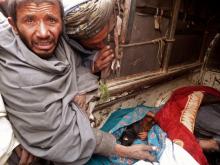
Another 16 lives were added to the body count of the war in Afghanistan over the weekend.
All of them civilians, nine were children, including one three year old girl.
The alleged perpetrator, a U.S. Sergeant, killed many of the victims with a single shot to the head before he piled together eleven of the bodies and set them on fire.
There is no way to measure the loss for the families of the victims, no way to understand the harm done to peace process in the country and no way to calculate the additional deaths of Americans, Afghans and others from across the world this will likely cause.
There is no way to know the full cost of war.
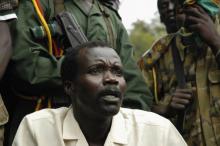
“Nothing is more powerful than an idea whose time has come.”
So begins the Invisible Children’s KONY 2012 video that recently went viral. And yet, I would perhaps change this opening quote to say something like, “Nothing is more powerful than the stories by which we construct our identities,” because these stories determine who you believe you are and how you believe you can engage in the world and with others.
Powerful. Potentially dangerous. Always in some way failing in it’s accuracy and exclusive to someone else. Even with our best intentions.
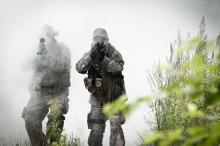
While compiling the morning “Daily Digest,” I often recall the advice of Karl Barth, who is said to have told young theologians “to take your Bible and take your newspaper, and read both. But interpret newspapers from your Bible.”
There are many mornings that Jesus’ advice comes to mind after reading the news. When you hear of wars and rumors of wars, do not be alarmed; this must take place, but the end is still to come (Mark 13:7). While I am not an end times apocalyptic, there are days that Jesus’ prophecy seems all too real.
Many people who were hopeful for change in the wake of Barack Obama's election have become disillusioned by the rancorous politics of the last few years. What does it take to sustain the struggle for justice over the long haul?
A conservative Brazilian bishop who broke away from his church over the consecration of an openly gay bishop in New Hampshire was found murdered with his wife in the northeastern town of Olinda, according to the diocese.
Bishop Robinson Cavalcanti and his wife Miriam were found dead on Sunday (Feb. 26). Their adopted son, Eduardo, is a suspect in the stabbing deaths, church officials said.
Conservative Anglican media sites reported that Cavalcanti was returning from a parish visit.
Cavalcanti launched the breakaway Anglican Church -- Diocese of Recife after Bishop V. Gene Robinson was consecrated as the Episcopal bishop of New Hampshire in 2003.
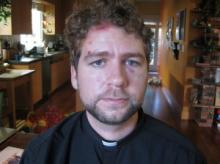
Amidst the recent police violence in Oakland and the sure temptation of some protestors to resort to violence, I wrote this little reflection inviting all Occupiers to a renewed commitment to nonviolence.
There is a verse in the Bible that says, “Our battle is not against flesh and blood but against the principalities and powers of this dark world.” It is a reminder that there are people behind oppressive structures — people who laugh and cry and bleed just like everyone else — and those people are not the enemies, but the systems are.
I was reminded of this when I went into Bank of America on Move Your Money Day, and transferred my money to the non-profit credit union here in Philadelphia. As I went into the bank, I saw the smiling faces of Bank of America tellers who have become friends over the past decade. When I told them I was closing my account, one of the women asked jokingly, “You don’t like us anymore?” At first my heart sunk, but then I said, “No way, I love the heck out of all of you. I just don’t like the values of the bank you work for.” To my surprise, they all smiled. In fact they may not like the values of the bank they work for either. Even though I’ll be leaving Bank of America, I’m hoping to stay in touch with my friends there. I may even take them some coffees next week, which I’ll charge on my new credit union debit card.
It is always tempting to demonize people and humanize corporations. It’s easy to forget that we are up against something bigger than flesh and blood people. And it’s particularly easy to forget that people are not the enemy when people are shooting pepper spray in your face.
U.S. Army Lieutenant Colonel Daniel Davis, during his second tour in Afghanistan last year, traveled throughout the country, meeting with and interviewing American troops. He came away convinced that military leaders had not told the truth, and the war was a disaster.

It seems like every day we hear from another politician saying that “we are ready to attack Iran if necessary," or from another pundit full of hot air telling us why we should invade Iran right now.
The presumptive Republican nominee, Mitt Romney, has said that he would support “something of a surgical-strike nature, to something of a ‘decapitate the regime’ nature to eliminate the military threat of Iran altogether.” President Obama has said: “Every option is on the table.” All of these conversations typically go along the lines of emphasizing how Iran poses a serious and immediate threat to the United States.
As was the case in the conversations leading up to the 2003 Iraq war, there is much heat, and not a whole lot of light.

I’ll admit I’m a sucker for stories about the malleability of human morality. From the mob movies, where a guy can whack his cousin but better not show his Patron any “disrespect,” to justice-seeking serial killers like “Dexter,” there’s plenty of justified violence to be found.
Where do such seemingly contradictory value systems come from? And do they actually happen in the real world today?
How about the politician who claims a platform that values a respect for “all life,” while justifying war and advocating for capital punishment? Or those who celebrate the death of Osama Bin Laden and Saddam Hussein? And the list goes on.
It’s common in western culture to objectify the Islamic faith, cherry-picking texts from their scripture and plucking choice sound-bytes from extremist leaders, to portray the whole of the religion as inherently violent. This, in turn, is employed to justify violence in-kind, or worse, preemptive violence, as in the case of our invasion of Iraq.
I call this “Dexter” theology.